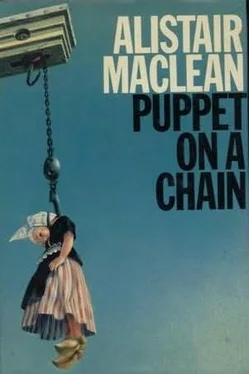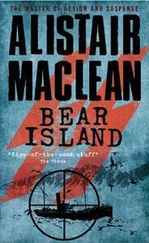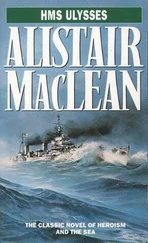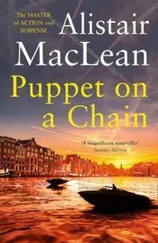The first tram along, a three-coach affair, bore the number '16' and the destination board 'Central Station'. The grey man boarded the first coach. I entered the second and moved to the front seat where I could keep a watchful eye on him, at the same time positioning myself so as to present as little as possible of myself to his view should he begin to interest himself in his fellow passengers. But I needn't have worried; his lack of interest in his fellow passengers was absolute. From the continual shift and play of expression, all unhappy, on his face, and the clasping and unclasping of his hinds, here clearly was a man with other and more important things on his mind, not least of which was the degree of sympathetic understanding he could expect from his employers.
The man in grey got off at the Dam. The Dam, the main square in Amsterdam, is full of historical landmarks such as the Royal Palace and the New Church which is so old that they have to keep shoring it up to prevent it from collapsing entirely, but neither received as much as a glance from the grey man that night. He scuttled down a side-street by the Hotel Krasnapolsky, turned left, in the direction of the docks, along the Oudezijds Voorburgwal canal, then turned right again and dipped into a maze of side-streets that obviously penetrated more and more deeply into the warehouse area of the town, one of the few areas not listed among the tourist attractions of Amsterdam. He was the easiest man to follow I'd ever come across. He looked neither to left nor right, far less behind him. I could have been riding an elephant ten paces behind him and he'd never have noticed.
I stopped at a corner and watched him make his way along a narrow, ill-lit and singularly unlovely street, lined exclusively by warehouses on both sides, tall five-storey buildings whose gabled roofs leaned out towards those on the other side of the street, lending an air of claustrophobic menace, of dark foreboding and brooding watchfulness which I didn't much care for at all.
From the fact that the grey man had now broken into a shambling run I concluded that this excessive demonstration of zeal could only mean that he was near journey's end, and I was right. Half-way along the street he ran up a set of handrailed steps, produced a key, opened a door and disappeared inside a warehouse. I followed at my leisure, but not too slowly, and glanced incuriously at the nameplate above the door of the warehouse: 'Morgenstern and Muggenthaler', the legend read. I'd never heard of the firm, but it was a name I'd be unlikely to forget. I passed on without breaking step.
It wasn't much of an hotel room, I had to admit, but then it wasn't much of an hotel to begin with. Just as the outside of the hotel was small and drab and paint-peeling and unprepossessing, so was the interior of the room. The few articles of furniture the room contained, which included a single bed and a sofa which obviously converted into a bed, had been sadly overtaken by the years since the long-dead days of their prime, if they'd ever, had a prime. The carpet was threadbare, but nowhere near as threadbare as the curtains and bed coverlet: the tiny bathroom leading off the room had the floor space of a telephone-box. But the room was saved from complete disaster by a pair of redeeming features that would have lent a certain aura of desirability to even the bleakest of prison cells. Maggie and Belinda, perched side by side on the edge of the bed, looked at me without enthusiasm as I lowered myself wearily on to the couch.
'Tweedledum and Tweedledee,' I said. 'All alone in wicked Amsterdam. Everything all right?'
'No.' There was a positive note in Belinda's voice.
'No?' I let my surprise show.
She gestured to indicate room. 'Well, I mean, look at it.'
I looked at it. 'So?'
'Would you live here?'
'Well, frankly, no. But then five-star hotels are for managerial types like myself. For a couple of struggling typists these quarters are perfectly adequate. For a couple of young girls who are not the struggling typists they appear to be this provides about as complete a degree of anonymity of background as you can hope to achieve.' I paused. 'At least, I hope. I assume you're both in the clear. Anyone on the plane you recognized?'
'No.' They spoke in unison with an identical shake of the head.
'Anyone in Schiphol you recognized?'
'No.'
'Anyone take any particular interest in you at Schiphol?'
'No.'
'This room bugged?'
'No.'
'Been out?'
'Yes.'
'Been followed?'
'No.'
'Room searched in your absence?'
'No.'
'You look amused, Belinda,' I said. She wasn't exactly giggling but she was having a little difficulty with her facial muscles. 'Do tell. I need cheering up.'
'Well.' She was suddenly thoughtful, perhaps recalling that she hardly knew me at all. 'Nothing. I'm sorry.'
'Sorry about what, Belinda?' An avuncular and encouraging tone which had the odd effect of making her wriggle uncomfortably.
'Well, all those cloak-and-dagger precautions for a couple of girls like us. I don't see the need — '
'Do be quiet, Belinda!' That was Maggie, quicksilver as ever in the old man's defence though God knew why. I'd had my professional successes that, considered by themselves, totted up to a pretty impressive list but a list that, compared to the quota of failures, paled into a best-forgotten insignificance. 'Major Sherman,' Maggie went on severely, 'always knows what he is doing.'
'Major Sherman,' I said frankly, 'would give his back teeth to believe in that.' I looked at them speculatively. 'I'm not changing the subject, but how about some of the old commiseration for the wounded master?'
'We know our place,' Maggie said primly. She rose, peered at my forehead and sat down again. 'Mind you, it does seem a very small piece of sticking plaster for what seemed such a lot of blood.'
'The managerial classes bleed easily, something to do with sensitive skins, I understand. You heard what happened?'
Maggie nodded. 'This dreadful shooting, we heard you tried — '
'To intervene. Tried, as you so rightly said.' I looked at Belinda. 'You must have found it terribly impressive, first time out with your new boss and he gets clobbered the moment he sets foot in a foreign country.'
She glanced involuntarily at Maggie, blushed — platinum blondes of the right sort blush very easily — and said defensively: 'Well, he was too quick for you.'
'He was all of that,' I agreed. 'He was also too quick for Jimmy Duclos.'
'Jimmy Duclos?' They had a gift for speaking in unison.
'The dead man. One of our very best agents and a friend of mine for many years. He had urgent and, I assume, vital information that he wished to deliver to me in person in Schiphol. I was the only person in England who knew he would be there. But someone in this city knew. My rendezvous with Duclos was arranged through two completely unconnected channels, but someone not only knew I was coming but also knew the precise flight and time and so was conveniently on hand to get to Duclos before he could get to me. You will agree, Belinda, that I wasn't changing the subject? You will agree that if they knew that much about me and one of my associates, they may be equally well informed about some other of my associates.'
They looked at each other for a few moments, then Belinda said in a low voice: 'Duclos was one of us?'
'Are you deaf?' I said irritably.
'And that we — Maggie and myself, that is — '
'Precisely.'
They seemed to take the implied threats to their lives fairly calmly, but then they'd been trained to do a job and were here to do a job and not fall about in maidenly swoons. Maggie said: 'I'm sorry about your friend.'
I nodded.
'And I'm sorry if I was silly,' Belinda said. She meant it too, all contrition, but it wouldn't last. She wasn't the type. She looked at me, extraordinary green eyes under dark eyebrows and said slowly: They're on to you, aren't they?'
Читать дальше
Конец ознакомительного отрывка
Купить книгу












